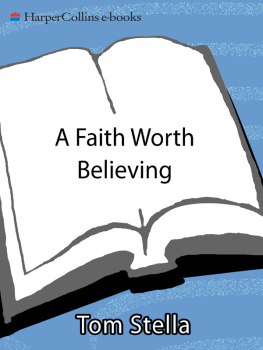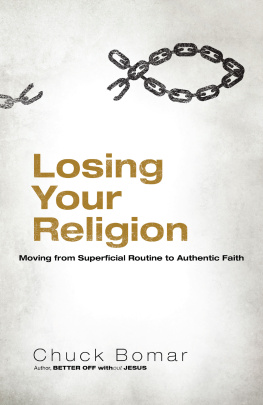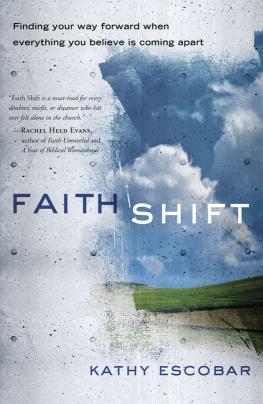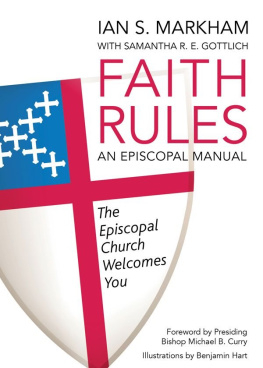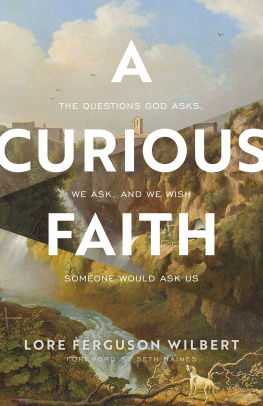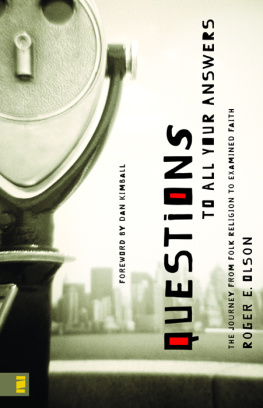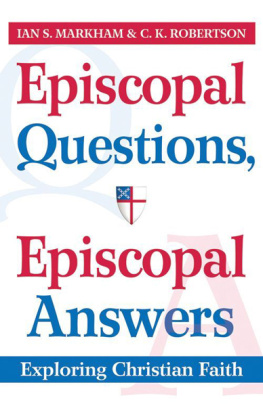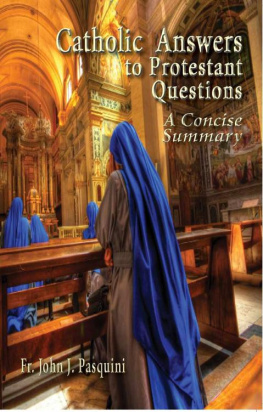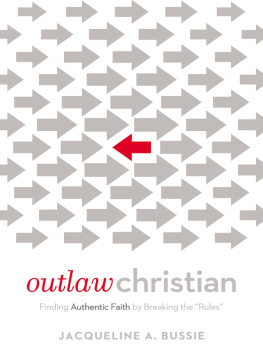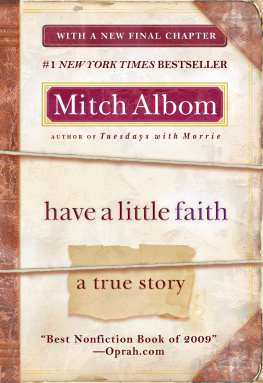This book is dedicated to my father, Andrew Stella, who through hard work, a sense of humor, a healthy disregard for decorum, and a love of life both embodied and pointed to the passionate reality that is the sacred wonder of our existence on this planet.
I do not remember at what age I first became conscious of God, church, and religion, but I do recall that that awareness, when it developed, centered around feelings of fear and guilt. I had a haunting sense that God was displeased with me, and that I must find a way to become better than I was if I wanted to avoid an eternity in hell.
That way involved keeping the rules of religionbelieving what my faith-tradition professed to be true, worshiping when and where it dictated, and acting in accord with its code of conduct. This was the ticket, the means by which I could enter the arena of Gods embrace. I became intent on getting it rightthat is, on pleasing/appeasing Godand I became discontent with myself when I failed to do so.
The belief system by which I was nurtured also instilled in me a sensitivity to the passing nature of life as we know it, and a belief in the primacy of an infinite reality yet to be realized. I learned that the world was both a temporary place and a place of temptation, a proving ground that, if negotiated well, led to an eternity of bliss in heaven.
In conversation with people from a variety of faith-traditions, I have found that my earliest religious recollections and associations are similar to theirs. Independent of the particulars unique to each religion, there are elements of a common belief having to do with Gods being less than happy with humanity, with obedience to religious dictates being the means of assuaging this divine dissatisfaction, and with the world being the place where we earn the right to spend eternity with God.
Many people live their lives content with the interpretation of religious truths they learned in their childhood. Some of them cling tightly to their beliefs and judge harshly anyone who does not. A greater number, motivated by traditional understandings of the topics we will consider in these chapters, live positive, productive, and caring lives. But others of us, for a variety of reasons, reach a point when what once made sense in the realm of religion does so no longer. It is at this juncture that we are invited to recognize that there is a deeper meaning to the teachings and truths traditional religion espouses, and a more profound dimension to ourselves than we had ever imagined.
I grew up believing the teachings of the Catholic Church practically without question until I was in college. At that time the study of existential philosophy brought me to the realization that my beliefs had been a crutch upon which I leaned to get through life, to answer unanswerable questions, to deny the apparent randomness and absurdity of the human condition. This was truly a time of crisis. The solid foundation upon which my life had rested, the matrix of meaning that had formed the infrastructure of my self-understanding, the sense of security that had shielded me from lifes harsher realities, crumbled in what seemed like an instant. How could I have believed for so long what now seemed to be without substance? How could I remain identified with a religious institution when its teachings and practices had ceased to have meaning? I didnt know then what I know nownamely, that doubt is an important phase in the process of faith-development and not necessarily an indication of faiths demise.
Over time, with an integrity that felt right to both head and heart, I was able to affirm the reality of God without having to deny the random reality of life in the world. I began to accept God as a companion in the chaos rather than someone who was sleeping on the job when bad things happened to good people. My childhood understanding of Jesus as one sent from on high to atone for our sins also began to change at this time, and I recognized and affirmed the holiness of his humanity more than I had previously.
As the shaken foundation of my faith began to settle, I was able to shift my focus from myself to the events that were unfolding in the world around me. I began graduate studies in theology in Washington, D.C., in 1967. Civil rights issues and the war in Vietnam were front-burner and frontpage phenomena. Churches, my own and others, were becoming more aware of, and outspoken about, social issues, and the gospel was being viewed as a call to action rather than a handbook for personal piety or mandated morality.
This was a vital, if tumultuous, time in our nations history. I breathed the air of this tumult in the city that was at the center of policymaking and the site of demonstrations objecting to those policies. Washington, D.C., was also a city, like many others that spring, that was ravaged by riots in response to the assassination of Martin Luther King Jr. My exposure to this atmosphere changed forever and for the better my understanding of the prophetic nature of religion and of the gospel, both of which call us to be fully in the world at the same time that they challenge us not to be of it.
Two experiences helped me to recognize that a person need not be separated from life in the world in order to be in touch with Goda false concept that had subtly taken root in me while I was ensconced in the seminary. Following the completion of graduate theological studies, I spent a year and a half acquiring a masters degree in counseling at the University of Michigan. Living on my own in a secular environment opened me to the realization that the values I had internalized from my faith-tradition were similar to those espoused by many non-Catholics, non-Christians, and nonbelievers. I met and found a soul-connection with people very different from me, religiously speaking, but very much one with me spiritually.
About six years later, and after functioning as a priest for five of those years, I began a leave of absence (during which I lived in Chicago and San Francisco) in order to rethink my commitment. The necessity of supporting myself financially thrust me into a world that was alien to me. Instead of being free to contemplate eternal truths and minister to those in need, I was having to think about everyday matters and attend to my own needsto do what most people must do in order to survive and to support themselves and their families. As a result of this experience, I became less critical and more compassionate toward those who spend their time and energy on worldly affairs. I became more aware of the sacredness of everyday life and of the need to discover in the workplace, at play, and in relationships the presence of the Holy that I had mistakenly believed was primarily in less earthy venues.

